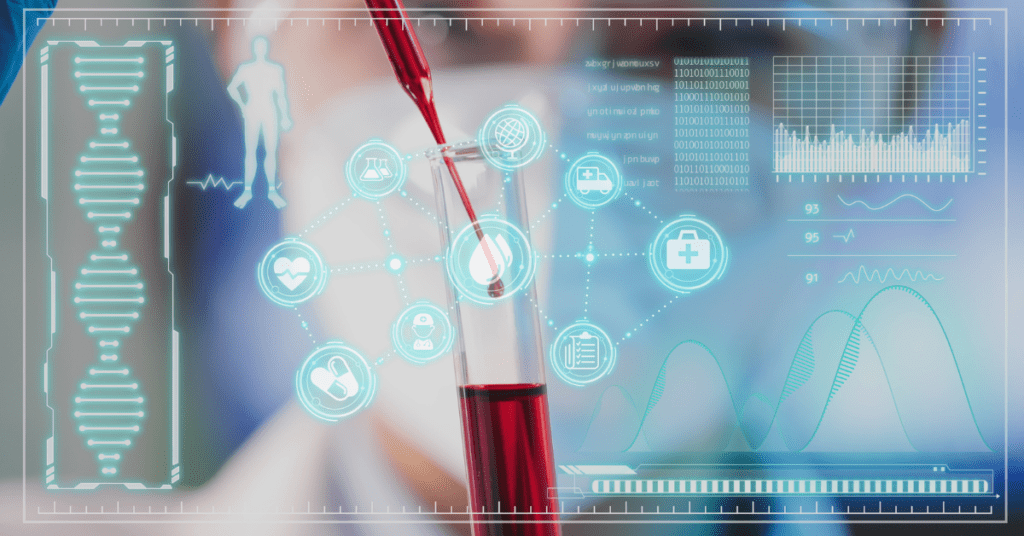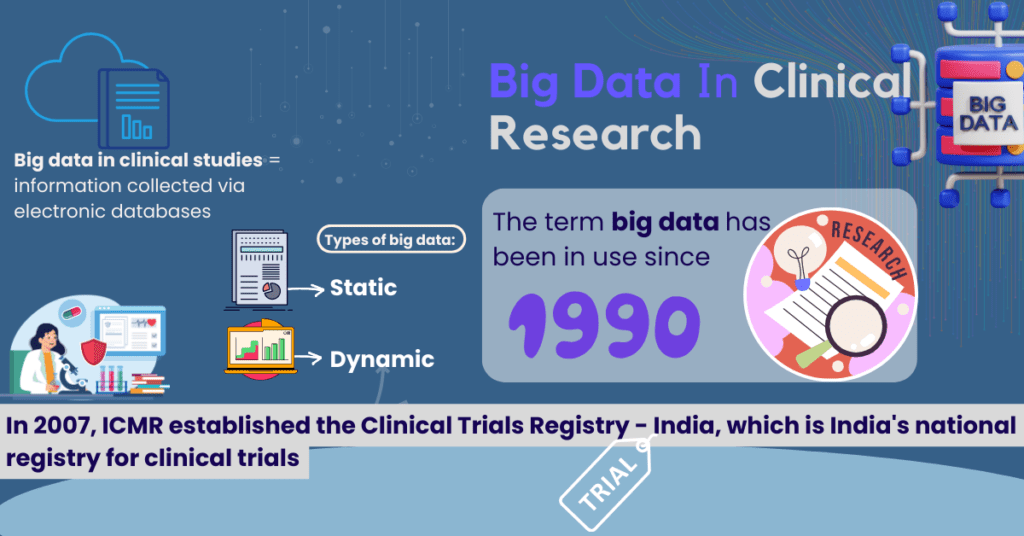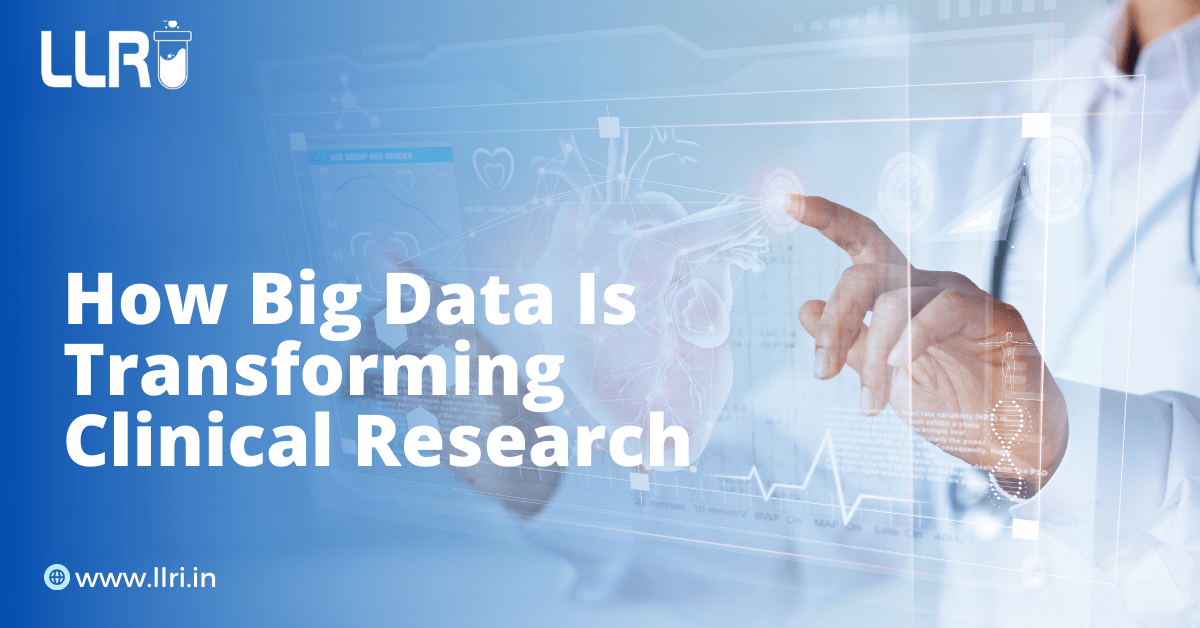How Big Data Is Transforming Clinical Research: Big Data – as the name suggests, is indeed data in big quantities. Revolutionizing several fields in a single go, Big Data is no stranger to the healthcare industry as well. But how exactly big data is transforming clinical research? Do you know?
In a single glance, Big Data is indeed a boon to not just the healthcare industry, but also the whole wide world – if you’ve to ask. Theoretically, big data is the collection of vast sets of data that are too large and complex for traditional processing tools to deal with. Enter – technological advancements – and we have Big Data!
When it comes to clinical research, big data would mean the collection of clinical trial data, patient records, real-time health data (smartwatches, CGM sensors, etc.), and genomic sequences. Now let’s get down to business, shall we?
How Big Data Is Transforming Clinical Research?
It is no news that the amount of data collected and stored in the healthcare industry is massive – the list is endless. With this comes the issue of overburdening of data, hence hampering the data quality in the end; and not just that, with the increasing amount of data gathered, the cost incurred in the process, too hikes.
In a situation as such, there application of big data becomes the saving grace – enabling the documentation as well as storing of the deluge of data. Let’s take a look at the way how big data is transforming clinical research.

1. Improved data collection and analysis
Big data allows for the collection of massive datasets from diverse sources, including electronic health records (EHRs), wearable devices, genomic sequencing, and patient registries. Advanced analytics and machine learning algorithms can process and analyze these datasets at unprecedented speeds, uncovering patterns and correlations that would be impossible to detect manually.
2. Personalized medicine
One of the most significant impacts of big data in clinical research is the shift towards personalized medicine – a primary example of how big data is transforming clinical research. By analyzing genetic information alongside clinical data, researchers can identify which treatments are most effective for specific patient populations. This leads to tailored treatment plans that improve efficacy and reduce adverse effects.
3. Predictive analytics
Among the many benefits of using big data in clinical research is that big data enables predictive analytics, which can forecast disease outbreaks, patient responses to treatments, and potential side effects. This proactive approach helps in early intervention and better resource allocation, ultimately enhancing patient care.
4. Improved drug discovery
Big data analytics speeds up the drug discovery process by identifying potential drug candidates and predicting their efficacy and safety profiles, reducing the time and cost associated with bringing new drugs to market – remember the COVID pandemic and the swiftness with which the vaccines were rolled out? All thanks to Big Data!

On to the next step: the benefits of big data in clinical research.
What Are The Benefits Of Using Big Data In Clinical Research?
- Improved patient outcomes: With personalized treatment plans and early detection of diseases through predictive analytics lead to better patient care and outcomes and is a prime example of how big data is transforming clinical research.
- Efficiency and cost savings: Automating data collection and analysis reduces the time and cost of clinical trials. Real-time data from wearable devices also allows for continuous monitoring without the need for frequent hospital visits, one of the major benefits of using big data in clinical research.
- Better collaboration: Big data facilitates collaboration across institutions and countries, enabling large-scale studies and meta-analyses that provide more robust evidence.
- Clearer insights: Another major role of big data in clinical research is its role of integration of various data types provides a holistic view of health and disease, leading to more accurate and comprehensive insights.

What Are The Challenges Of Big Data In Clinical Research?
With the benefits come the challenges – or else, what’s the whole point, right? Here are the most reported challenges of big data in clinical research:
- Data privacy and security handling: Vast amounts of sensitive patient data raise significant privacy and security concerns. Ensuring compliance with regulations such as GDPR and HIPAA while maintaining data integrity is one of the major challenges of big data in clinical research.
- Data quality and standardization: The diverse sources of big data often lead to inconsistencies and variations in data quality. Standardizing data formats and ensuring accuracy is crucial for reliable analysis and results.
- Integration and interoperability: Integrating data from various systems and ensuring interoperability between different platforms can be technically complex and resource-intensive, posing one of the challenges of big data in clinical research.
- Ethical considerations: The use of big data in clinical research also poses ethical challenges, such as informed consent, potential biases in data, and the risk of misuse of information. While the role of big data in clinical research can be seen from a positive angle, it really is one of the major challenges of big data in clinical research.
Takeaway….
Big data plays a multifaceted role beyond just clinical applications, but the role of big data in research is something that is indeed a technological marvel. Along with the challenges of big data in clinical research, the benefits tend to stand a tad bit taller and by witnessing the way how big data is transforming clinical research, looks like there is no stopping!
As technology continues to evolve, the potential for big data to revolutionize clinical research and healthcare as a whole will only grow.
For more information, visit us here.

